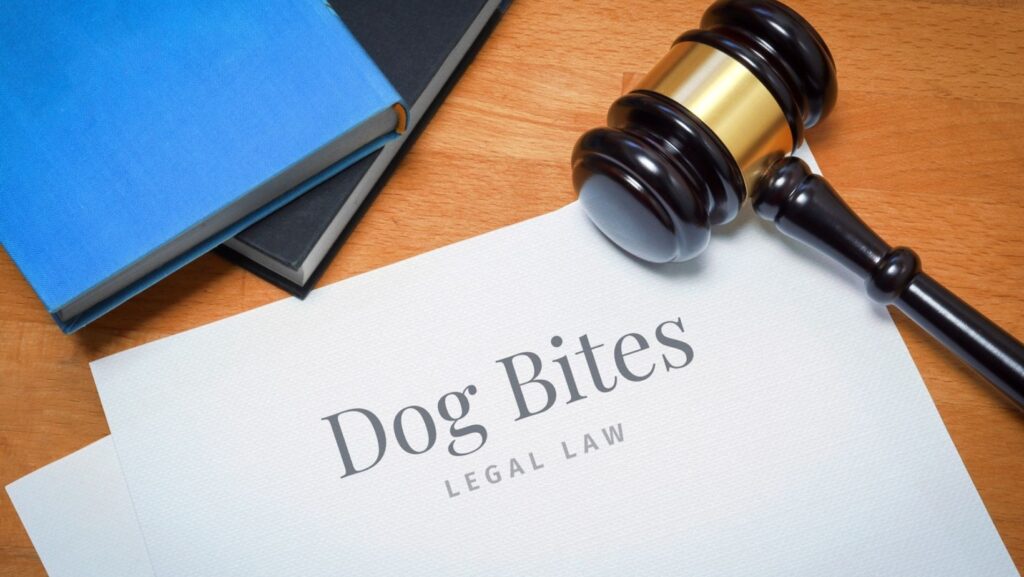
4 Key Factors That Impact Dog Bite Compensation
Dog bites can result in serious financial burdens, physical injuries, and lasting psychological impacts.
For victims, these incidents often involve more than immediate medical expenses; they may lead to ongoing treatments, emotional trauma, and even reduced earning capacity. Understanding the elements that impact dog bite settlements can provide a clearer path to pursuing fair compensation.
Read on to discover the four factors that can shape your dog bite compensation and help you pursue the settlement you deserve.
Severity of Injuries and Medical Expenses
In a dog bite settlement, the severity of injuries and associated medical costs play a significant role.

The following are key aspects considered when determining compensation for injuries:
- Type and extent of injury: Deep wounds, fractures, and damage to nerves or muscles require more complex, often costly treatment. Serious injuries, particularly those affecting areas like the face or those impairing movement, typically result in higher settlements due to the physical toll and associated rehabilitation needs.
- Immediate and long-term medical expenses: Beyond initial treatment costs, ongoing medical care can greatly increase compensation. For instance, if therapy, surgery, or regular follow-up visits are needed, these future expenses will be accounted for to ensure full financial coverage for recovery.
- Physical pain and suffering: Physical pain experienced as a result of the injury is another crucial factor. Courts may award additional amounts to recognize the pain endured, especially in severe cases involving traumatic injuries or lasting physical limitations.
To fully understand the potential compensation for injuries, seeking professional guidance can be invaluable. A free consultation Salt Lake City dog bite lawyer or one in your area can assess your case details. This support helps you determine a fair amount to claim for injuries and medical expenses.
Emotional Trauma and Psychological Impact
Dog bite injuries often cause significant emotional distress, affecting victims’ daily lives and well-being. The psychological impact of a traumatic event like a dog bite can contribute substantially to the overall compensation.
Below are key factors related to emotional trauma and its potential impact on a dog bite claim:
- Emotional trauma: Victims often face emotional challenges, including fear, anxiety, or depression, especially if they’re left with scars or disabilities. Compensation can include amounts for emotional trauma if it’s proven to impact daily life and mental health.
- Post-traumatic stress disorder (PTSD): Some individuals develop PTSD after a dog bite. Children especially may have lasting trauma, which can affect their development and relationships. Compensation may cover therapy or counseling for such conditions.
- Loss of enjoyment of life: Severe dog bite injuries can impact a victim’s ability to enjoy life as they did before. If you’re unable to engage in hobbies, sports, or other activities, this may be considered in your claim.
Taking into account these emotional effects provides a more comprehensive view of the losses experienced due to a dog bite. Properly addressing these factors with legal guidance ensures that victims pursue fair compensation for the full extent of their trauma.
Impact on Earning Capacity and Lost Wages
Dog bite injuries can disrupt a person’s ability to work, affecting both current income and long-term earning potential.
Here are some key considerations related to lost wages and reduced earning capacity that may influence compensation:
- Lost wages: If you have missed work due to injury recovery or treatment, you may seek compensation for these lost wages. Accurate documentation of time off is crucial for maximizing this portion of your claim.
- Reduced earning capacity: In cases where the dog bite injury has led to a long-term disability or limited physical function, your ability to work in the future may be affected. Compensation can cover the difference between your past and reduced earning potential.
- Impact on career: For those in physically demanding jobs, a serious dog bite injury can necessitate a career change, which may require retraining or education. These additional costs are often considered in dog bite lawsuits.

Accurately assessing the financial impact of a dog bite injury on your income, both now and in the future, is crucial to seeking fair compensation.
Liability of the Dog Owner and Insurance Coverage
The responsibility of the dog owner can be a decisive factor in the compensation you may receive after a dog bite. Proving the owner’s liability often strengthens a claim and can increase the settlement amount.
Below are some key aspects of how owner liability and insurance coverage affect dog bite cases:
- Negligence or recklessness: If the dog owner failed to control their pet or allowed it to roam freely, they may be deemed negligent. Proving negligence can significantly impact the dog bite compensation amount.
- Insurance coverage: Many dog bite settlements are paid out through homeowners’ or renters insurance policies. Coverage limits can affect the compensation received, as insurance companies may try to limit payout amounts.
- Strict liability in dog bite laws: Some states have strict dog bite laws that automatically hold the dog owner liable, regardless of negligence. Familiarizing yourself with your state’s dog bite statute is important in understanding your legal options.
Determining the dog owner’s liability and understanding the available insurance coverage are crucial for maximizing your compensation in a dog bite case.
Final Thoughts
Dog bite claims are complex and depend on various factors. Each case is unique, with different impacts on the victim’s health, livelihood, and well-being. Understanding these aspects can help you approach your claim more confidently. Seeking legal advice can also ensure you pursue fair compensation. Don’t hesitate to consult a professional to strengthen your case and protect your rights.





